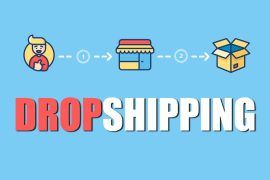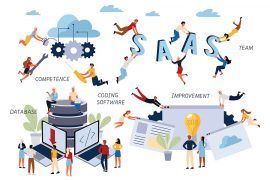Even the most self-assured of us can become nervous during an interview. They make sure to raise our heart rate, especially if it is for a responsible position such as project manager. many questions might come to your mind like, What should I put on? What if I get lost on my way to the interview room? And, perhaps most agitating of all, what are they going to ask me? but don’t be concerned, You can help yourself and calm your nerves by foreseeing and preparing for the questions ahead of time. We’ve made a list of some common yet crucial project management interview questions, some quality responses as well, to help you prepare for your upcoming interview.
Table of Contents
Most Common Project Management Interview Questions

Before we get into the meat of the matter, Here are a few things to keep in mind: A good project manager is a natural leader who can communicate well, has exceptionally good organizational skills, can negotiate as well as mediate. They should be capable of managing your projects using appropriate software.
1. What three skills do you believe are most important for a successful project manager?

The employer is looking for specific skills in their next project manager. However, they want to hear from you about what you believe are the most important skills you bring to the table.
How to Respond: As you might expect, you’ll want to choose skills that are not only necessary for being a project manager, but also skills that you already have. You don’t want to sow seeds that will jeopardize your credentials.
” Being an effective and respected project manager necessitates strong communication skills, excellent organizational abilities, and a keen ability to manage time. However, when it comes to the underlying qualities required to be a strong project manager, I believe the ‘Talent Triangle’ is the best breakdown. A well-rounded project manager who is willing to work and manage in a variety of business functions is one who combines technical project management, leadership, and strategic and business management.”
2. What was your favorite project that you managed and what did you like about it?

During your project manager interview, you should expect to be asked a number of behavioral interview questions, which require you to recall and explain specific examples and experiences. This question, in particular, allows the interviewer to determine how much project management experience you have, what types of projects you excel at managing, and how much passion you have for the role.
How to respond: When answering any type of behavioral interview question, you should be as specific as possible. You don’t have to go into excruciating detail, but you should be ready to elaborate with real-life examples and explanations. Consider the following:
“In my previous company, I had a great time managing the implementation of [some program you worked on]. It provided me with an opportunity to evaluate and improve any processes that weren’t working for us. In addition, I appreciated being able to work with every department in our office to ensure their requirements are fulfilled. It was not easy but satisfying!”
3. How do you establish project objectives? How do you keep track of how far those objectives have progressed?

A project will not be completed unless clear goals are established. And, in most instances, it’s up to the project manager to set those goals while also keeping a pulse on progress. This is a fairly straightforward question. The interviewer is interested in how you handle those two critical tasks: setting Smart goals and tracking progress toward those objectives.
How to Respond: As previously stated, questions like this, which directly relate to what skillset you bring to the table, require a thoughtful, detailed, and tactical response. Don’t just skim over your strategy. Examine any methodologies or tools you’re using to make this process easier for you and your project team. Consider the following:
“Setting smart and efficient goals is something I strongly believe in. Making sure that the project team’s objectives are specific, achievable, meaningful, and time-bound helps to confirm that we’re on the right track. When setting goals, I also make a point of sitting down and discussing with the project team to incorporate their ideas and opinions on where we should go. That, in my opinion, is critical for increasing enthusiasm about the aim while also trying to maintain realistic objectives. In terms of tracking progress, I use a combination of smaller milestones, regular check-ins, and the ever-helpful Flowchart to ensure we’re on the right track.”
4. Describe a recent challenge you faced and how you overcame it?

Even the finest and most considerate project managers will admit that things can get tangled up from time to time. Problems and surprises are unavoidable, and the employer needs someone who can keep going even in messed-up situations and lead the team forward.
How to respond: To answer this troubling behavioral interview question, you can provide a specific example from your experience. No project is perfect, so it shouldn’t be too difficult to recall a time when you encountered a problem. Ideally, you’ll want to discuss a challenge that resulted in success due to your cleverness. Your response could be something like this:
“I was in charge of supervising the redevelopment and redesign of our company’s website for some upcoming event. The engineering and design teams couldn’t agree on how to layout a specific page on the website in accordance with the event, which was holding back the entire team. To put an end to the numerous private discussions and back-and-forth emails, I organized an all-team meeting where everyone could speak their minds. We reached an agreement and continued with the project, completing it ahead of schedule.”
5. How do you handle team conflicts?

Whether you like it or not, conflict is more or less unavoidable on a project team. It is also the project manager’s responsibility to ensure that issues are resolved in an efficient and effective manner. When everyone meets deadlines and produces high-quality results, project management becomes much easier. Unfortunately, there are always situations when some people struggle to deliver. Understandably, the questioner wants to know how you intend to address these personal issues and that you will not simply brush them off, before adding you to a team.
How to Respond: A strong candidate would also mention how they helped team members improve their work processes. Probably you’ve had some experience dealing with conflict. Consider how you handled similar situations in the past, and then use that experience as your response:
“I usually use the strategy of avoidance, distraction, and confrontation. Most importantly, I limit the interaction between the opposing parties in order to gain some distance and identify the root cause of the conflict. Then, I ask other members in one-on-one conversations to determine if there is a specific task or factor that is causing the trouble. At this point, the confrontation begins. I’ll facilitate a problem-solving meeting to distract them from their conflict and confront them in which the opposing members can discuss the issues, reach an agreement, and move forward. I also make it a point to follow up on that matter on a regular basis to ensure that the underlying issue has been addressed, resentment has been removed, and a new conflict has not arisen.”
Wrapping Up
These are some of the top questions that a Project Manager can expect in an interview. These questions briefly cover all aspects of delivering a project end to end. Also, if you are looking for a job change in Marketing, you should check out our article on Marketing Jobs in SaaS, right away!






